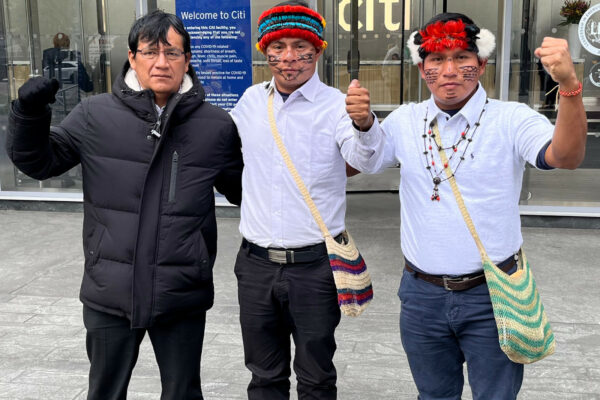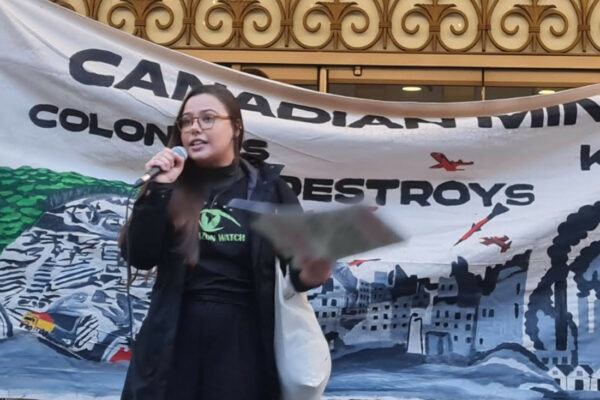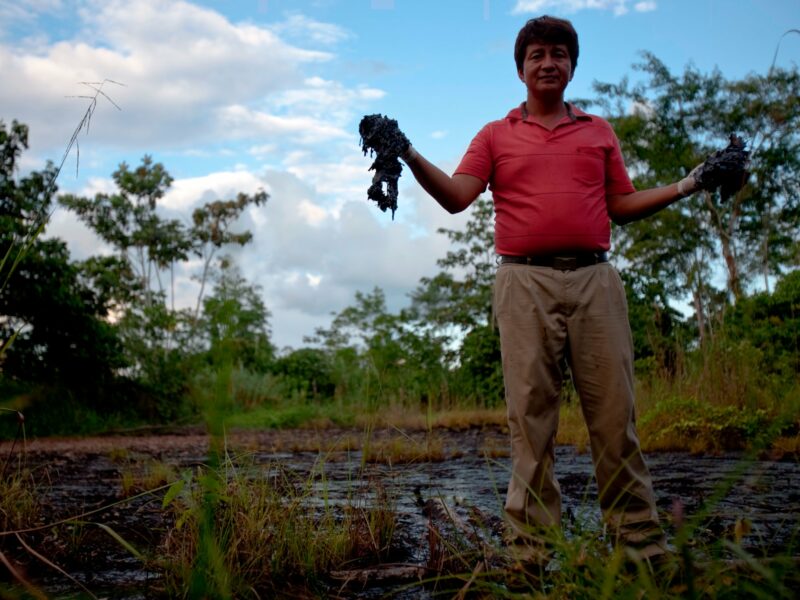New York – A lawyer for Ecuador urged a federal appeals court on Monday to let lawsuits seeking more than a billion dollars brought by Ecuadorean Indians against Texaco Inc. proceed in the United States.
The New York-based lawyer, Ronald Minkoff, told the 2nd U.S. Circuit Court of Appeals (news – web sites) in Manhattan that forcing the case to move to Ecuador would delay justice for the tribes.
“We’ll send it back,” Minkoff said of Ecuador, which passed a law in 1998 that said a plaintiff who files a lawsuit outside the country is forever prevented from bringing the same action in Ecuadorean courts.
He urged a three-judge panel to overrule a lower court judge and order the case to proceed in the United States.
The two lawsuits claim that oil drilling technology taken to Ecuador by Texaco three decades ago, and still in use by Petroecuador, the national oil company, has turned thousands of square miles (kilometers) of Amazon rain forest (news – web sites) into a “toxic waste dump.”
Texaco maintains the lawsuits have no merit.
George Branch, a lawyer for Texaco, told the appeals court that the case should be moved to Ecuador, just as Judge Jed Rakoff ruled last May and the government of Ecuador had once argued, before it changed positions.
He suggested that the government of Ecuador now wanted the case in the United States so it could more easily appear to be supporting the tribes while distancing itself from the issue.
All three of the appeals court judges questioned whether Ecuador’s legal system could handle lawsuits on the scale brought by the tribes.
One judge questioned whether the courts there could move the lawsuits along fast enough, another wondered if the lawsuits would overwhelm the judicial system of Ecuador and the third suggested that class action lawsuits of this kind were not permitted in Ecuador.
Branch said the appeals court had no basis to overturn Rakoff’s ruling.
“He did everything that was asked of him,” Branch said. “His decision was comprehensive and speaks for itself.”
The appeals court reserved decision.
Outside court, Humberto Piaguage, 37, a member of the Huarani Tribe, said the Indian population was suffering and needed speedy justice.
He said the environmental damage caused by oil wells contaminating the waterways had forced thousands of Indians who fished and hunted their food to buy what they ate at stores and adopt the methods of the West.
“Instead of hunting we must go and buy meat,” he said through an interpreter. “We cannot bathe in rivers anymore or walk barefoot.”
He claimed the environmental damage had also caused an outbreak of cancer and other diseases, with no established medical system to support the population.
“It’s like an open wound of nature, and this wound has to be closed,” he said. “We want a guarantee that our life is going to be better in the future.”
As he spoke, Piaguage touched his headdress, which contained colored yarn rather than the traditional feathers because, he said, the birds have all died.













